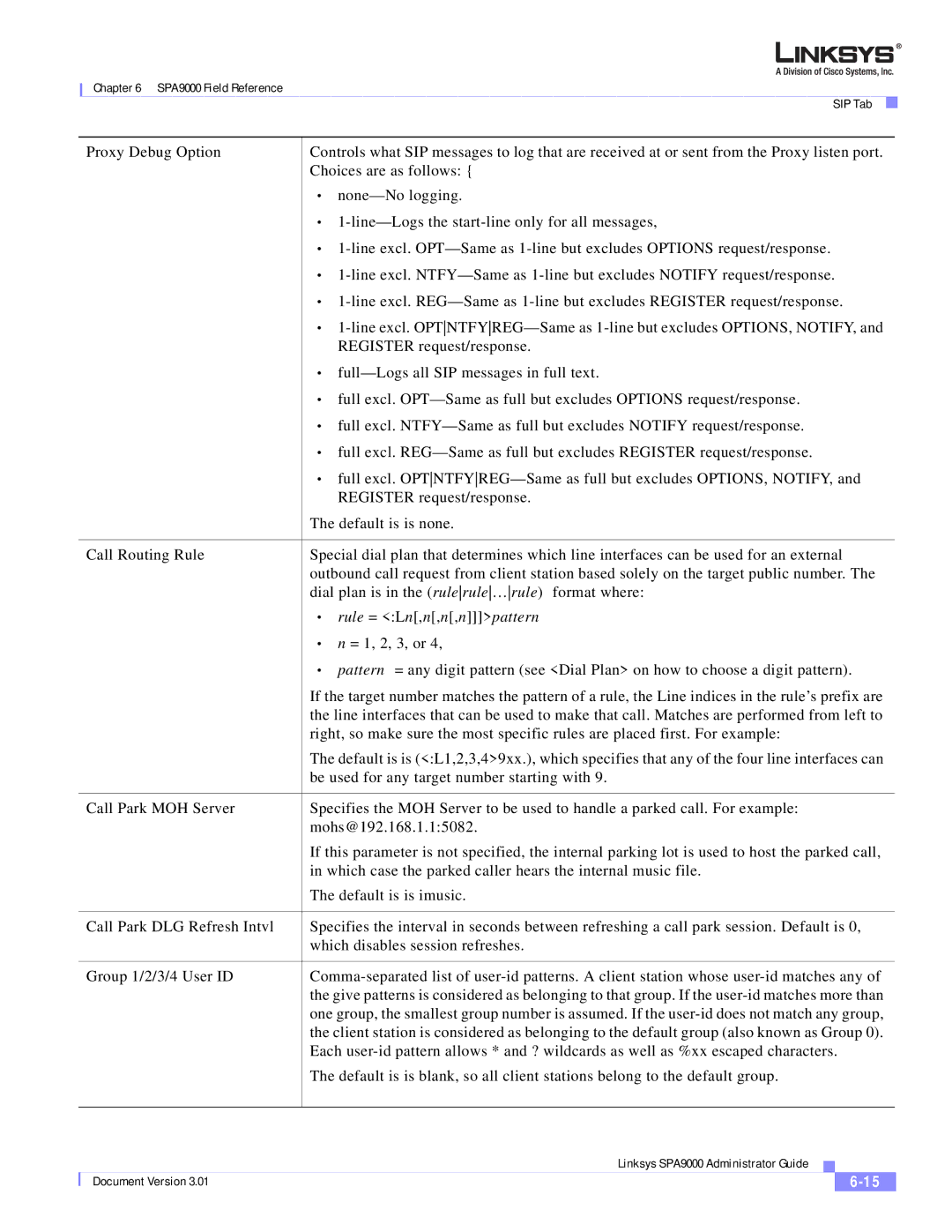Chapter 6 SPA9000 Field Reference
|
|
| SIP Tab |
| |
|
|
|
|
|
|
| Proxy Debug Option | Controls what SIP messages to log that are received at or sent from the Proxy listen port. | |||
|
| Choices are as follows: { | |||
|
| • | |||
|
| • | |||
|
| • | |||
|
| • | |||
|
| • | |||
|
| • | |||
|
|
| REGISTER request/response. | ||
|
| • | |||
|
| • full excl. | |||
|
| • full excl. | |||
|
| • full excl. | |||
|
| • full excl. | |||
|
|
| REGISTER request/response. | ||
|
| The default is is none. | |||
|
|
|
|
| |
| Call Routing Rule | Special dial plan that determines which line interfaces can be used for an external | |||
|
| outbound call request from client station based solely on the target public number. The | |||
|
| dial plan is in the (rulerule…rule) format where: | |||
|
| • | rule = <:Ln[,n[,n[,n]]]>pattern | ||
|
| • n = 1, 2, 3, or 4, | |||
|
| • | pattern = any digit pattern (see <Dial Plan> on how to choose a digit pattern). | ||
|
| If the target number matches the pattern of a rule, the Line indices in the rule’s prefix are | |||
|
| the line interfaces that can be used to make that call. Matches are performed from left to | |||
|
| right, so make sure the most specific rules are placed first. For example: | |||
|
| The default is is (<:L1,2,3,4>9xx.), which specifies that any of the four line interfaces can | |||
|
| be used for any target number starting with 9. | |||
|
|
|
|
| |
| Call Park MOH Server | Specifies the MOH Server to be used to handle a parked call. For example: | |||
|
| mohs@192.168.1.1:5082. | |||
|
| If this parameter is not specified, the internal parking lot is used to host the parked call, | |||
|
| in which case the parked caller hears the internal music file. | |||
|
| The default is is imusic. | |||
|
|
|
|
| |
| Call Park DLG Refresh Intvl | Specifies the interval in seconds between refreshing a call park session. Default is 0, | |||
|
| which disables session refreshes. | |||
|
|
|
|
| |
| Group 1/2/3/4 User ID | ||||
|
| the give patterns is considered as belonging to that group. If the | |||
|
| one group, the smallest group number is assumed. If the | |||
|
| the client station is considered as belonging to the default group (also known as Group 0). | |||
|
| Each | |||
|
| The default is is blank, so all client stations belong to the default group. | |||
|
|
|
|
|
|
|
| Linksys SPA9000 Administrator Guide |
|
| |
|
|
| |||
| Document Version 3.01 |
|
|
| |
|
|
|
| ||
